Mind Matters – Different Mental Maladies
The concept & script for this film is given by Dr. Ishita Sanyal.
Knowing Dr. Ishita Sanyal
Founder & Director at Turning Point, Kolkata, India
Psychologist & mental health activists involved in transforming the life of people suffering from chronic mental illness & fighting for their rights for last 20 years.
Key Career Accomplishments
• Creating the first day care center (Turning Point) in India which was activity centered therapy center nurturing the creative pursuits of MI people
• Started Disha– the child guidance center for children
• Started Parent’s group in Kolkata
• Eastern regional Director of NAMI,India
• Written columns in the Times of India & Telegraph on Mental health for almost 5 years
• Written & edited the Book Abujh Mon which depicts how mental illness affects the whole family.
• Directed three documentaries “From dusk to dawn” & “Dare to Dream”,Open the door
• Have presented papers in national & International conferencesRecipient of national & International awards like
- David Feinsilver Award,
- Manthan Award,
- UGC-CEC Award,
- Barbo Sandin Award,
- Helen Keller Award,
- (2nd position) in International e-Health Competition,
- Metro Award,
- winner of Boston Pledge Competition & others.
Academic Qualifications:
- Post Graduation in Social Therapy from ESI, New York
- Graduation in Psychology Honours. Secured 2nd Position in the University.
- Post Graduation in Counseling & Psychotherapy
Professional experience:
- Director of a documentary “ from Dusk to Dawn”
- Was attached to B.N.R. Central Hospital, Garden reach for a year from 1997-1998.
- Founder Director of a new NGO – Turning Point in 1998.It is the first organization which provided Rehabilitation & counseling services for the persons suffering from mental illness.
- Started a new center –Disha at 2000.
- Columnist in Times of India for 2 years.
- Expert eye / freelancer in Telegraph & some other magazines.
- Columnist in TTIS
- Columnist in Bengali Magazine
- Writer & Editor of the Book ABUJH MON, which was highly appreciated by Nabanita Dev Sen & Sunil Gangopadhay.
- As the Founder Secretary of Turning Point, main fields of work is content development , report writing & administrative works for Turning Point
Different Mental Maladies
Paranoia
Paranoia involves intense anxious or fearful feelings and thoughts often related to persecution, threat, or conspiracy. Paranoia occurs in many mental disorders, but is most often present in psychotic disorders. Paranoia can become delusions, when irrational thoughts and beliefs become so fixed that nothing (including contrary evidence) can convince a person that what they think or feel is not true. When a person has paranoia or delusions, but no other symptoms (like hearing or seeing things that aren’t there), they might have what is called a delusional disorder. Because only thoughts are impacted, a person with delusional disorder can usually work and function in everyday life, however, their lives may be limited and isolated.
What are the Signs of Paranoia?
Symptoms of paranoia and delusional disorders include intense and irrational mistrust or suspicion, which can bring on sense of fear, anger, and betrayal. Some identifiable beliefs and behaviors of individuals with symptoms of paranoia include mistrust, hypervigilence, difficulty with forgiveness, defensive attitude in response to imagined criticism, preoccupation with hidden motives, fear of being deceived or taken advantage of, inability to relax, or are argumentative.
What Causes Paranoia?
The cause of paranoia is a breakdown of various mental and emotional functions involving reasoning and assigned meanings. The reasons for these breakdowns are varied and uncertain. Some symptoms of paranoia relate to repressed, denied or projected feelings. Often, paranoid thoughts and feelings are related to events and relationships in a person’s life, thereby increasing isolation and difficulty with getting help.
Bipolar Disorder
Bipolar disorder is a mental health disorder characterized by extreme highs and lows in mood and energy. While everyone experiences ups and downs, the severe shifts that happen in bipolar disorder can have a serious impact on a person’s life. More than 3.3 million American adults (1.7%) suffer from bipolar disorder in a given year.
Contrary to how it is sometimes used in conversation, a diagnosis of bipolar disorder does not mean a person is highly emotional but rather refers to someone who experiences extended periods of mood and energy that are excessively high and or/irritable to sad and hopeless, with periods of normal mood in between.
It typically begins in adolescence or early adulthood and continues throughout life. It is often not recognized as an illness and people who have it may suffer needlessly for years.
Bipolar disorder can be extremely distressing and disruptive for those who have this disease, their spouses, family members, friends, and employers. Although there is no known cure, bipolar disorder is treatable, and recovery is possible. Individuals with bipolar disorder can and do have successful relationships and meaningful jobs.
The combination of medication, therapy, healthy lifestyle, and support helps the vast majority of people return to productive, fulfilling lives.
Obsessive-Compulsive Disorder (OCD)
People with obsessive-compulsive disorder (OCD) suffer intensely from recurrent unwanted thoughts (obsessions) or rituals (compulsions), which they feel they cannot control. Rituals, such as handwashing, counting, checking or cleaning, are often performed in hope of preventing obsessive thoughts or making them go away. Performing these rituals, however, provides only temporary relief, and not performing them increases anxiety. Left untreated, obsessions and the need to perform rituals can take over a person’s life. OCD is often a chronic, relapsing illness.
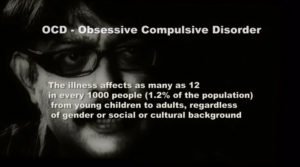 Characteristics
Characteristics
Obsessions are thoughts, images or impulses that occur repeatedly. The person does not want to have these ideas, finds them disturbing and intrusive and, usually, recognizes that they really don’t make sense. Obsessions are accompanied by uncomfortable feelings, such as fear, disgust or doubt. Common obsessions include contamination fears, imagining having harmed self or others, imagining losing control of aggressive urges, intrusive sexual thoughts or urges, excessive religious or moral doubt, or a need to tell, ask or confess.
People with OCD typically try to make their obsessions go away by performing compulsions. Compulsions are acts the person repeatedly performs, often according to certain “rules.” These rituals are performed to obtain relief from the discomfort caused by the obsessions. Examples of compulsions are washing, repeating, checking, touching, counting, ordering/arranging, hoarding or saving, and praying.
In some instances, a person may suffer from only obsessions or only compulsions.
OCD symptoms cause distress, take up a lot of time (more than an hour a day), or significantly interfere with the person’s work, social life or relationships.
Phobias
Everyone feels anxious or uneasy from time to time. Your first day on a new job, planning for a long trip, going to the dentist….your palms sweat, you feel shaky, your heart pounds. Some anxiety helps to keep you focused on the job at hand. However, when your anxiety is so serious that it interferes with your work, leads you to avoid certain situations or keeps you from enjoying life, you may be suffering from a form of the most common type of mental disorder, an anxiety disorder.
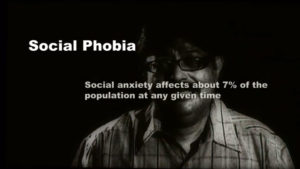 Anxiety disorders are not just a case of “nerves.” You can’t overcome an anxiety disorder just through willpower, nor can the symptoms be ignored or wished away. These disorders cause you to feel anxious most of the time, making some everyday situations so uncomfortable that you may avoid them entirely. Or, you may experience occasional instances of anxiety that are so terrifying and intense that you may be immobilized with fear.
Anxiety disorders are not just a case of “nerves.” You can’t overcome an anxiety disorder just through willpower, nor can the symptoms be ignored or wished away. These disorders cause you to feel anxious most of the time, making some everyday situations so uncomfortable that you may avoid them entirely. Or, you may experience occasional instances of anxiety that are so terrifying and intense that you may be immobilized with fear.
Although these conditions can be very frightening and disabling, they are also very treatable. It is important to recognize the symptoms and seek help.
There are three main groups of phobias which include:
- Specific (simple) phobias, which are the most common and focus on specific objects
- Social phobia, which causes extreme anxiety in social or public situations, and
- Agoraphobia, which is the fear of being alone in public places from which there is no easy escape.
Source – http://www.mentalhealthamerica.net
The Film:
A Cinema for a Cause initiative of Learning System
Script Dr. Ishita Sanyal
Role Play Ashoke Vishwanathan
Supported by Goutam Shankar
Edited by PANDORA’s REEL(Logo)
Creatives Rohan Banerjee
Shot & Directed by Abhishek Ganguli
Created by Learning System www.learning-system.in













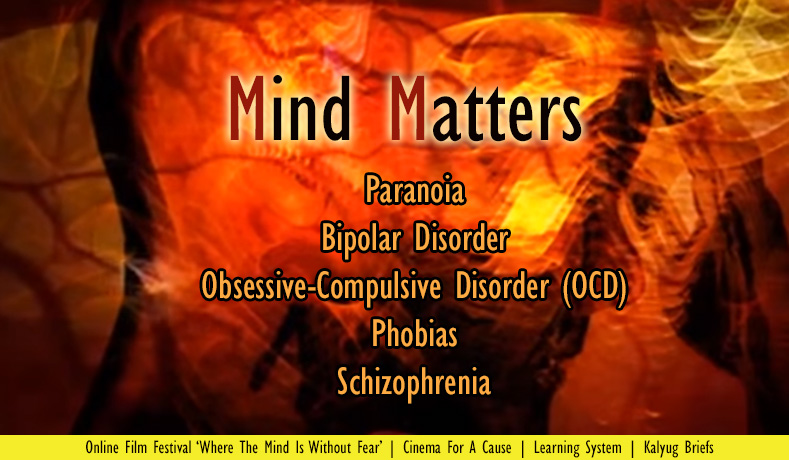
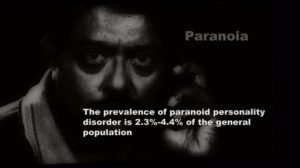
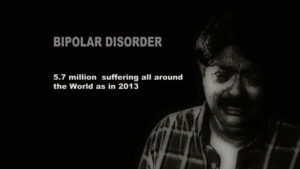
Leave a comment